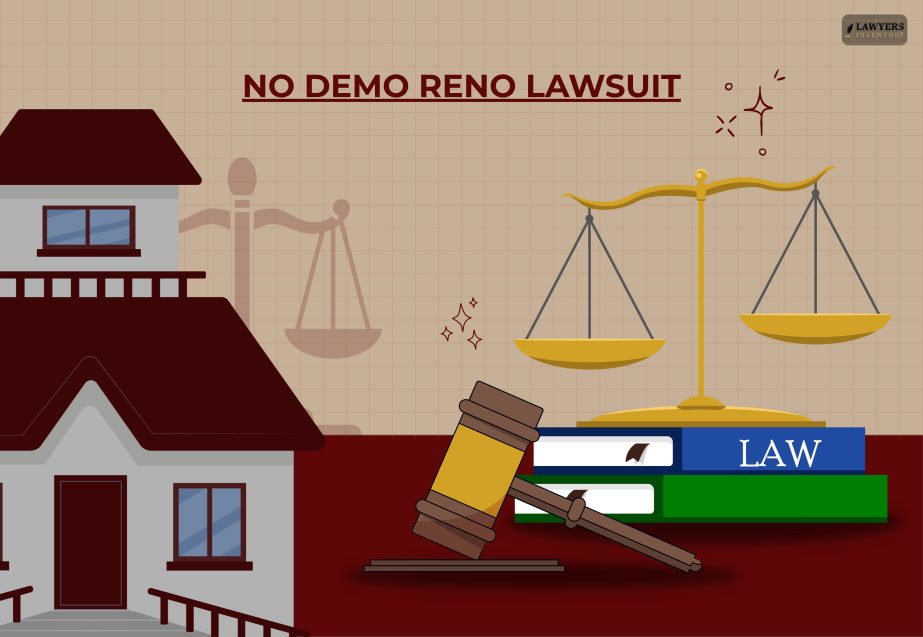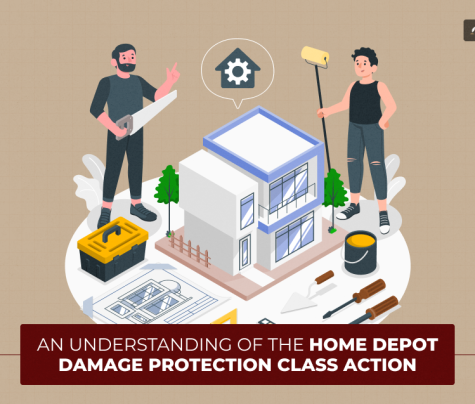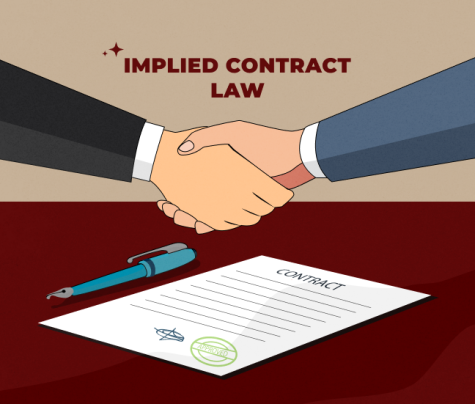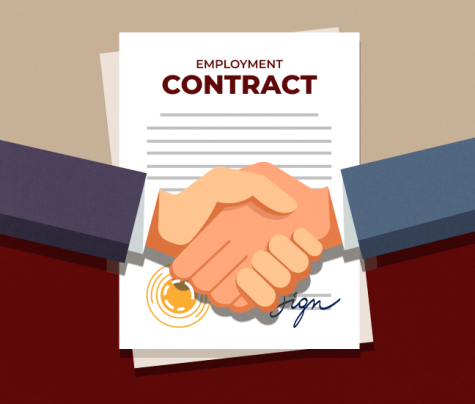
No Demo Reno Lawsuit- A high-profile court battle has been keeping homeowners everywhere in the know. The case is against the popular TV series No Demo Reno. The no demo reno lawsuit serves as a harsh reminder of the risks of instant home makeovers.
We break down the core claims, the implications of law, and most of all, provide you with a checklist to protect your home. The No Demo Reno Lawsuit highlights the difference between on-air timelines on reality TV and everyday construction standards. Accountability for contractors is highlighted due to this case.
Be ready to understand why professional oversight is always necessary, even for a simple renovation.
Background – What is the “No Demo Reno” Show?
No Demo Reno was a hit show based on its catchy concept. The host promised radical transformations without the mess, time, and expense of a total tear-down. The show typically features quick, low-cost makeovers by not doing major structural changes. Filmed primarily in the Dallas–Fort Worth region, the concept assumed minimal disruption to homeowners.
For the dream of a quick, clean renovation, though, for one Texas couple, it became a nightmare in an instant, leading directly to the much-publicized no demo reno lawsuit. This case demonstrates just how thin the line really is between entertainment and sound construction practice.
Television Home Renovation Lawsuit – Who, What, When
The lawsuit developed from a renovation that was featured on the show. Homeowners Joe and Mandy Smith are the plaintiff in the recent no demo reno lawsuit. They sued the host of the show, the contractors, and the production companies that did the work in 2022.
The Smiths claimed severe issues arose when the renovation was complete. The residents are now seeking substantial damages, with claimed damages totaling US$1.477 million. The claims made in the no demo reno lawsuit concern severe safety violations. Additionally, they also deal with poor workmanship that allegedly made the house uninhabitable.
“No Demo Reno” Legal Case- Major Claims

The complaints the Smiths raised raise astonishing safety and compliance failures:
Hazardous Electrical Work
The homeowners charge that the contractors did electrical work without permits and inspections. The work, they assert, rendered the house’s electrical system in a dangerous condition.
Improper Gas Line Installation
One of the essential and very dangerous claims in the no demo reno lawsuit is the improper installation of gas lines. The installations, they assert, disregarded safety codes, which created a very risky danger.
Shoddy Work/Substitution of Materials
The plaintiffs argue that the quality of the final work was inferior. They also charge the contractors with substituting contracted materials for cheaper materials without permission.
Misrepresentation of the “No-Demo” Concept, and the homeowners argue that the work involved more demolition than advertised. Moreover, they charge that the show’s promise of low-budget, quick budgets was misleading in light of the amount of resulting damage and repairs.
Legal Theories Being Utilized

The allegations in the no demo reno case by the Smiths are based on a few common construction dispute legal theories:
Breach of Contract
The homeowners allege the contractors failed to complete the work to the agreed scope and quality specifications. This is one of the core allegations in the no demo reno case.
Negligence
Negligence theory is concerned with the failure to exercise reasonable care. Specifically, the failure to obtain required permits or comply with building codes constitutes professional negligence.
Misrepresentation/Fraud
Plaintiffs claim they were misrepresented about the scope, safety, and quality of the work before, during, and after the television project. This is specifically to the central “no-demo” guarantee.
Why This Case Matters – Implications for Homeowners & Industry
The no demo reno lawsuit extends far beyond that one Texas home. This case has now emerged as a landmark case of the potential risks when reality TV and construction come together.
It makes contractors and television networks rethink their liability. Homeowners nationwide watch the no demo reno lawsuit closely to see how it relates to their own protections.
Television makeovers are accomplished under tremendous stress. Production timelines are tight. Budgets are established and limited.
Moreover, such stress can motivate contractors to cut corners on vital, behind-the-scenes safety practices, including the pulling of permits or the ordering of inspections.
Reality television is all about dramatic transformation, which often replaces diligent, safe building practices. Such stress for sensationalism is responsible for an elevated risk of litigation, like the no demo reno lawsuit.
Contractor & Network Liability – Who’s at Risk

One of the main legal problems with the no demo reno lawsuit is fault. Responsibility is many-faceted and generally rests with multiple parties:
Contractor
The contractor is liable for the quality, safety, and legality of the work (e.g., pulling permits and compliance with code).
Production Company
They usually subcontract the contractors and arrange the rushed filming schedule. Their role in hastening could make them susceptible to negligence claims.
Network (HGTV)
Networks tend to keep to themselves at arm’s length, declaring production company and contractor are solely responsible for the physical work. However, they can still be called during the no demo reno lawsuit regarding their involvement in the plot and financing.
Risk Factors in “No-Demo” Style Renovations
The very concept of a “no-demo” renovation carries inherent risks that homeowners ought to be aware of. “No-demo” is supposed to mean minimal disruption, yet this approach can hide problems. Many say that the very name can be deceptive when substantial work is still done.
Hidden Damage & Scope Creep
When you do not demo completely, you cannot know what lies behind the walls. This approach risks leaving present structural, plumbing, or electrical problems unchecked and undetected. A “no-demo” approach might quickly suffer from scope creep when hidden issues (like rot or mold) are uncovered while filming.
Hurrying to fix hidden damage to meet a TV timeline substantially increases the risk of safety oversights, echoing the accusations contained in the no demo reno lawsuit.
No-Demo Home Renovation Risk- Permit, Code & Safety Overviews
The no demo reno lawsuit claims refer to egregious code infractions. Permits are not optional. They involve required inspections at junctures of high risk (electrical, plumbing, framing) for safety reasons.
Skipping these to save time or money is illegal. This places the homeowner in dire financial and physical harm. This non-compliance is the basis of the no demo reno lawsuit.
TV Timeline & Budget Pressure
High-stress, tight-timeline nature of television production can pressure contractors to be slack and forgo essential due diligence.
When a contractor is more concerned with the creation of drama than with building structural integrity, homeowners are the victims down the line. A tight timeline is one big reason that the issues of the no demo reno lawsuit crop up.
Read Also: Four Lakes Task Force Assessments Lawsuit- Legal Significance And Property Owner Impacts
How to Protect Yourself – Homeowner Checklist
Each homeowner has to take a cautious approach before, during, and after any remodel, especially one that includes television or a “no-demo” concept.
Due Diligence
Pre-Renovation Due Diligence can look like the following.
Vet Contractor/Licensing
Ensure your contractor’s up-to-date license and insurance with your state licensing authority at all times. Do not let their TV presence alone influence you.
Get Multiple Quotes
Receive quotes from several capable contractors to make realistic cost and time estimates.
Get Written Contract
Demand a detailed contract. It should include the exact scope of work, material specifications (including model numbers), clear milestones, and a payment schedule.
At Renovation Oversight
Hire an independent inspector or engineer before work begins to locate any existing issues and throughout the construction process.
Documentation (Photos, Videos)
Take regular photos and videos of the work as it is being completed, especially before walls are closed. This document ensures proper installation and protects you in the event of later issues, similar to the evidence in the no demo reno lawsuit.
Change-Order Tracking
Demand written and signed change orders for any deviation from the original contract, no matter how small.
Post-Renovation Wrap-Up & Warranty
Want to know more about Wrap-Up & Warranty? Here you go.
Final Inspections
Ensure that all final required municipal inspections are done, and you receive the completion certificate.
Receiving Permits
You should receive copies of all permits pulled and inspection sign-offs (especially for electrical and gas work). This documentation would prove to be priceless in any future legal proceeding.
Warranty Agreements
Receive a written warranty by the contractor for labor and materials for at least one year.
Expert Tips & Best Practices
Other than the checklist, professionals offer other pieces of advice to avoid a situation such as the no demo reno lawsuit.
- First Tip: Independent Inspector Before and After Hire: An impartial expert will detect code infractions that contractors for the show might have left out or ignored.
- Second Tip: Define “No-Demo” Term in Contract: Specify what minimal demolition is all about. Determine where, without a new permit, things cannot be changed.
- Third Tip: Hold Back 10%: Retain a part of the last payment (usually 10%) until all of the items on the punch list are complete and final inspections/permits are closed out successfully.
- Fourth Tip: Define Who Pays for Concealed Work: Ensure your contract clearly identifies who pays for and bears the scheduling impact for concealed damages uncovered during construction. Refer to documents by organizations like the U.S. FTC for advice on how to hire a general contractor.
Read Also: Direct Fairways Lawsuit- Allegations, Legal Implications, And Consumer Impact
What’s Next – Case Status & Potential Industry Implications
As of 2025, the no demo reno lawsuit is ongoing. The ruling could have a legal precedent establishing impact. Favoring homeowners, a ruling would make TV stations and production companies more responsible for the safety and quality of construction featured on TV shows.
Regardless of the final choice, the no demo reno suit already triggered an essential awareness of the following.
a. contractor negligence and
b. pitfalls of patchwork home repairs across the trade.
Such awareness should lead to stronger agreements and heavier surveillance of home improvement TV shows.
Frequently Asked Questions (FAQs):
No demo reno lawsuit is an eye-opener for every homeowner. What is glamorous on television can hide costly and dangerous defects in real life. Vigilance, independent inspection, and rock-solid contracts are your only true protection against a renovation nightmare.
A: The no demo reno suit typically sues multiple defendants. Thus, this includes the host, the different contractors, and the production companies. Additionally, this applies to varying degrees of fault for negligence and breach of contract.
A: The single most significant lesson of the no demo reno lawsuit is to prioritize safety: always demand a promise that the contractor has pulled all necessary building permits and passed all necessary electrical and gas inspections.
A: Yes, the no demo reno lawsuit is currently ongoing. While it involves one show, its outcome might set broader legal precedents regarding responsibility for reality TV producers and networks that practice home makeovers.












0 Reply
No comments yet.